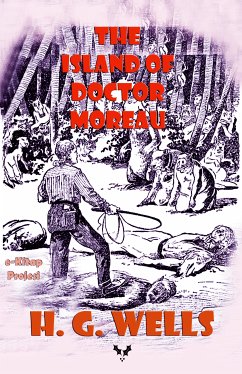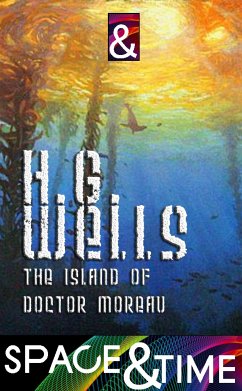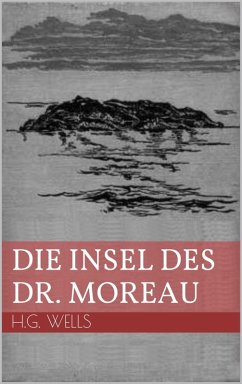
The Island of Doctor Moreau - Wells (eBook, ePUB)

PAYBACK Punkte
0 °P sammeln!
The character Charles Prendick is found shipwrecked by a vessel transporting wild animals to a small island in the Pacific. Still debilitated, he is unloaded on the island along with the cargo of animals. There, he encounters Dr. Moreau, a scientist who, akin to a plastic surgeon, creates species through operations without anesthesia. Dr. Moreau conducts gruesome experiments such as transplanting hooves and claws to create a more functional hand, as well as organs and tissues, creating aberrations as if playing God and purportedly aiming to "perfect evolution." Moreau does all of this for his ...
The character Charles Prendick is found shipwrecked by a vessel transporting wild animals to a small island in the Pacific. Still debilitated, he is unloaded on the island along with the cargo of animals. There, he encounters Dr. Moreau, a scientist who, akin to a plastic surgeon, creates species through operations without anesthesia. Dr. Moreau conducts gruesome experiments such as transplanting hooves and claws to create a more functional hand, as well as organs and tissues, creating aberrations as if playing God and purportedly aiming to "perfect evolution." Moreau does all of this for his aesthetic delight and pure selfishness of being a scientist who has achieved perfection, one who can "manipulate" evolution. All are Moreau's "creations." And what shocks Prendick the most is the cruelty contained not out of hatred, but out of the simple pleasure of the scientist's obsession to recreate and perfect creation. Published in 1896, "The Island of Dr. Moreau" is probably H.G. Wells' most impactful work. A masterpiece of the genre that, many years later, would come to be known as Science Fiction.
Dieser Download kann aus rechtlichen Gründen nur mit Rechnungsadresse in A, B, BG, CY, CZ, D, DK, EW, E, FIN, F, GR, H, IRL, I, LT, L, LR, M, NL, PL, P, R, S, SLO, SK ausgeliefert werden.













